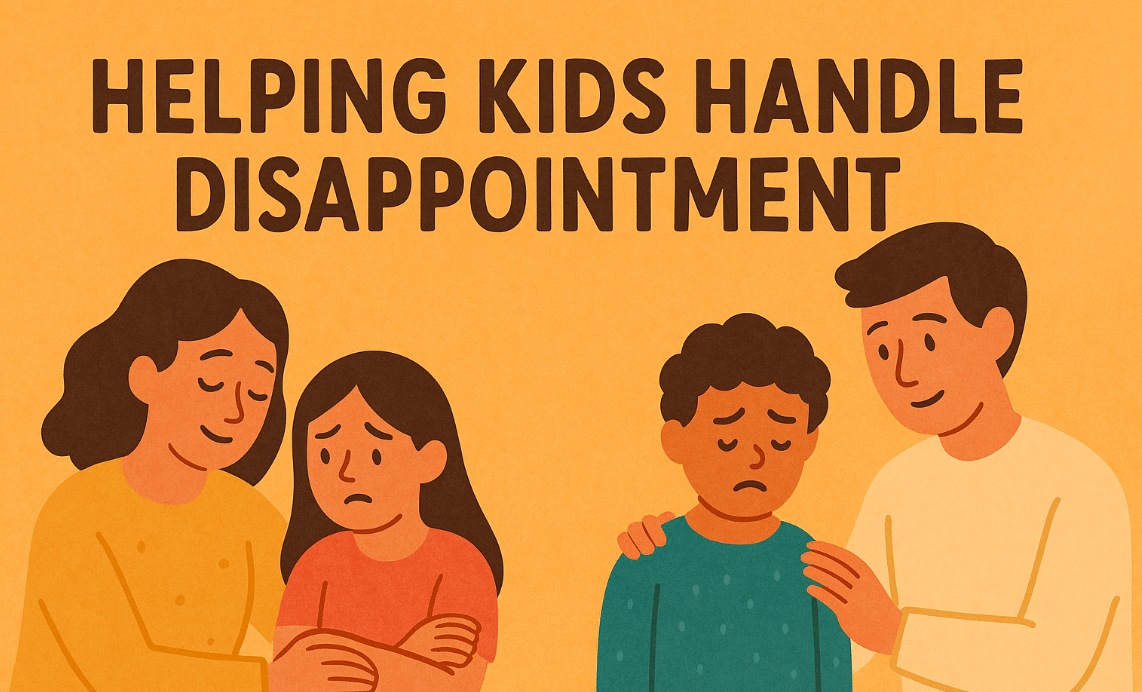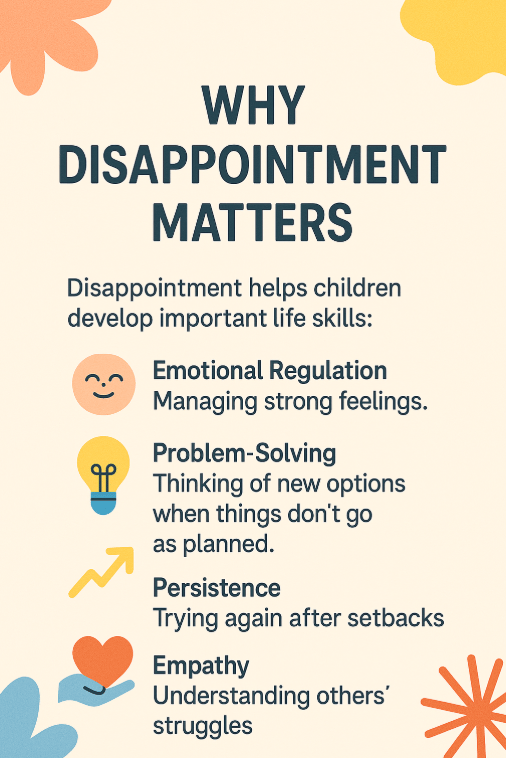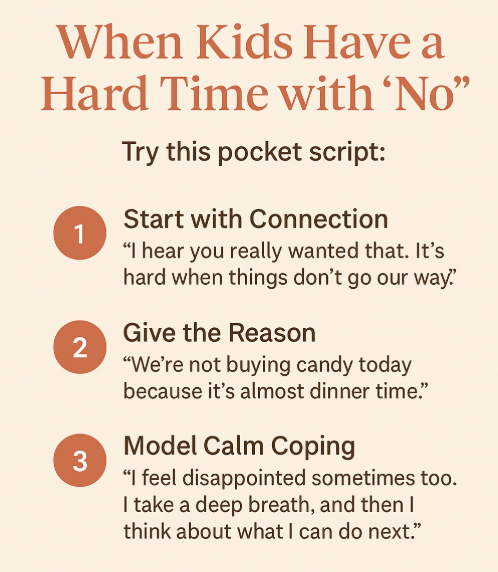Looking for unbiased, fact-based news? Join 1440 today.
Join over 4 million Americans who start their day with 1440 – your daily digest for unbiased, fact-centric news. From politics to sports, we cover it all by analyzing over 100 sources. Our concise, 5-minute read lands in your inbox each morning at no cost. Experience news without the noise; let 1440 help you make up your own mind. Sign up now and invite your friends and family to be part of the informed.
💛 A Little Click Goes a Long Way
We carefully choose the ads in this newsletter to make sure they’re family-friendly and relevant. When you click on them, you’re helping keep Playful Parent free and thriving—so thank you for supporting us with just a tap or two!

When the “No” Feels Big: Helping Kids Handle Disappointment
A Quick Read for Parents
Why Disappointment Matters
We often want to protect our kids from hard feelings. Watching them cry, slump their shoulders, or storm off in frustration tugs at our hearts. But disappointment isn’t something to erase—it’s something to navigate.
In fact, psychologists like Ann Masten refer to resilience as “ordinary magic,” meaning the everyday skills and supports that help children adapt to life’s challenges. One of the most reliable ways kids develop this resilience? Learning to handle disappointment in safe, supported ways.
When we give children the tools to work through disappointment rather than avoiding it, we’re helping them develop:
Emotional regulation — understanding and managing strong feelings.
Problem-solving skills — figuring out next steps after something doesn’t go their way.
Persistence — trying again, even after a setback.
Empathy — recognizing that others have struggles and feelings too.
Why It’s So Hard (For Them and Us)
For young children, disappointment can feel overwhelming because:
Their brains are still developing impulse control — the prefrontal cortex isn’t fully mature until the mid-20s.
They live in the present moment — a missed ice cream now can feel like the end of the world.
They take cues from us — if we react with panic, frustration, or overcompensation, they learn to see disappointment as unbearable.
And for parents, it’s challenging because:
We want to protect our kids from pain.
Their big emotions can trigger our own past experiences.
We sometimes believe that “good parents” keep their children happy at all times.
Practical Strategies That Work
Here’s how you can turn disappointing moments into life lessons:
1. Validate First
Start by naming and acknowledging the feeling:
“You really wanted to win that game, and you’re upset that you didn’t.”
This simple step tells your child, “I see you, I hear you, and your feelings matter.”
2. Resist the Quick Fix
Instead of rushing in with an alternative reward or distraction, pause. Allow your child to sit with the feeling, knowing you’re right there beside them. This helps build emotional tolerance.
3. Model Coping Out Loud
Share a personal story:
“I was really disappointed when my meeting got canceled. I took a walk to clear my head, and then I thought about what I could do instead.”
Kids learn through your example.
4. Offer Next-Step Choices
Once the feelings have eased, give a small menu of possible actions:
“Would you like to take a break in your room, or help me make a snack?”
5. Practice in Low-Stakes Moments
Games, puzzles, and pretend play are great opportunities to let your child experience “safe” disappointment and learn to recover.
What to Avoid
Minimizing (“It’s not a big deal”) — feels invalidating.
Overcompensating — offering big rewards every time they’re upset can make disappointment harder next time.
Taking it personally — your child’s meltdown isn’t a reflection of your worth as a parent.
Disappointment Isn’t Just a Kid Thing
Adults face disappointments daily—from traffic delays to job rejections. When we show our children how we handle our own setbacks with grace, problem-solving, and self-compassion, we give them a living example to follow.
Final Takeaway
You don’t need to fix every disappointment. You don’t need to turn every “no” into a “yes.” What your child needs most is you—present, calm, and willing to walk with them through the storm until the clouds clear.
By doing this, you’re not just soothing a momentary hurt—you’re helping them build the resilience they’ll carry into every chapter of their life.

Want more fact based evidence? Check out this interesting read! https://pmc.ncbi.nlm.nih.gov/articles/PMC4465117/



Parent Tip of the Week!


